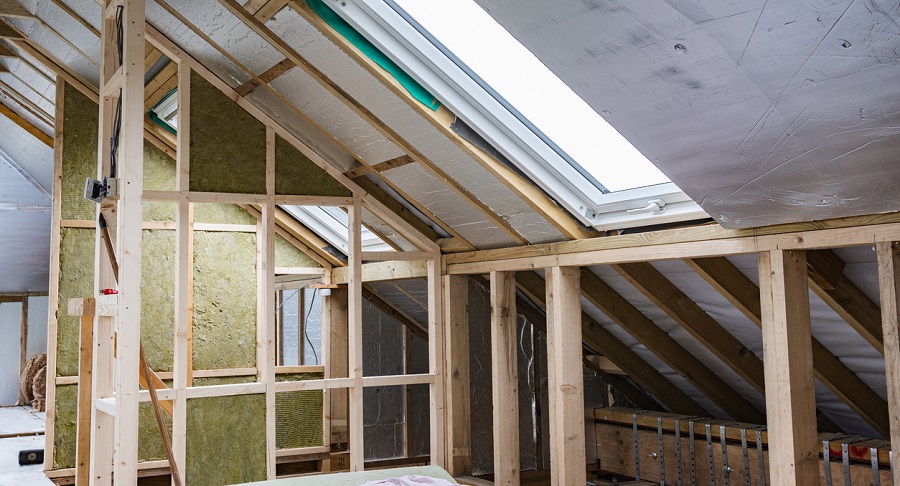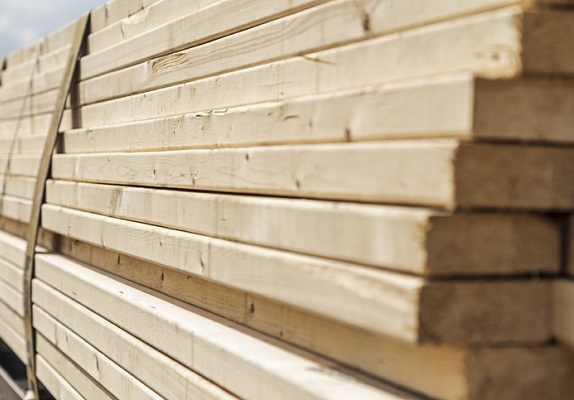C16 vs C24 Timber: Which One To Use?
Reading time: 6 minutes
What’s the main difference between C16 and C24 timber?
Both C16 and C24 timber are types of kiln-dried softwood, which are graded to show their strength and quality. The higher the number, the stronger the wood. C24 timber offers higher strength when compared to C16 but it’s still a durable wood for construction.
The ‘C’ stands for conifer, which can include woods such as pine, fir or spruce. The number shows its strength grade, set by BS EN 338 (structural use of timber). CLS products can also be strength graded to C16 or C24, which is a certain style of kiln-dried softwood which is planed and pre-treated.
The kiln drying process ensures a moisture level of less than 20% to minimise shrinkage when installed in dry building and to prevent decay.
How is timber graded?
Softwood timber’s strength class can be graded by visual inspection, either by a person or a machine. Machine grading often uses additional techniques to assess strength, such as bending strength indicators and acoustic measurements on x-rays. There are several considerations which affect a wood’s grading:
-
Knots - naturally, more knots mean less strength
-
Shakes or splits along the grain of the wood
-
Slope of the grain
-
Uniform appearance
-
Woodworm holes or insect damage
-
Wane (want) - bark or a lack of wood fibre on the edge of a piece of lumber
Hardwoods are graded slightly differently and put into one of six strength classes - D24, D30, D40, D50, D60 and D70 (with the 'D' standing for ‘deciduous’ wood).
What is C16 timber?
C16 timber is a kiln-treated softwood which is ideal for construction projects, as it offers a certain amount of strength and durability but at a lower cost than C24 grades. It may appear slightly lower quality when you inspect it, with some knots and imperfections, but it’s still a perfectly acceptable choice for partitioning, joists and stud work during the first fix.

Is C16 timber suitable for outdoor use?
C16 wood is recommended for indoor structural use, but if it is preservative treated to Use Class 3 or 4 for exterior use with any cut ends sealed it’s possible to use it successfully for exterior projects such as decking and other landscaping projects.
Is C16 waterproof?
Although some C16 wood may come pre-treated for strength and protection against insects and rot, this does not make it waterproof. The kiln drying process removes a lot of the moisture, but in order to make the wood waterproof it will need an additional wood decorative coating to be applied.
Is C16 load bearing?
C16 timber may be a better value alternative to C24, but it is still strong and resilient, despite its defects. It is suitable for load-bearing up to a certain point, such as for some domestic floor joists.
Is C16 OK for decking?
Although it’s the preferred choice for internal structural work, C16 timber can be used for decking and exterior landscaping when preservative treated to Use Class 3 or 4 for exterior use with any cut ends sealed. C16 graded wood is the minimum standard for decking above 600mm high, and is required by Building Regulations Part A for raised level structures.
What is C24 timber?
C24 timber is the highest quality of the softwood grades. It is a premium quality wood and is considered the strongest class, suitable for heavy load bearing or when a knot-free finish is needed. C24 wood is kiln dried, planed and can be available untreated or pre-treated. Naturally, with such quality and strength comes a higher price tag than most other grades.
Can you use C24 timber outside?
C24 timber can be used outside, providing that it’s been preservative treated and sealed to Use Class 3 or 4 for exterior use, making sure all cut ends are sealed to prevent warping, rot and damage over time from insects and weathering. It may also need maintenance each year to keep it looking its best.
Does C24 timber rot?
Although it’s specifically engineered to be the strongest softwood, C24 timber can still rot when used outside without being treated beforehand. C24 wood that has been preservative treated to Use Class 3 or 4 for exterior use can usually stand up against the elements for many years without rotting or degrading.
How much stronger is C24 than C16?
C24 timber is stronger than C16, but both can be suitable for load bearing. For comparison, according to BS EN 338 (Structural Timber. Strength Classes), for C16 the number 16 directly indicates bending strength parallel to the grain in Newtons per square millimetres 16 N/mm2. This strength class is suitable for general construction like floor and wall framing where high strength is not critical and a lower cost is desired. While for C24 the number 24 directly indicates its minimum bending strength parallel to the grain in Newtons per square millimetre is 24 N/mm2. This strength class is suitable for more specialist high strength applications such as beams or joists where longer spans are required.
Disclaimer: The information contained on this page is intended as an overall introduction and is not intended as specific advice from a qualified professional. Travis Perkins aims to avoid, but accepts no liability, in the case that any information stated is out of date.











